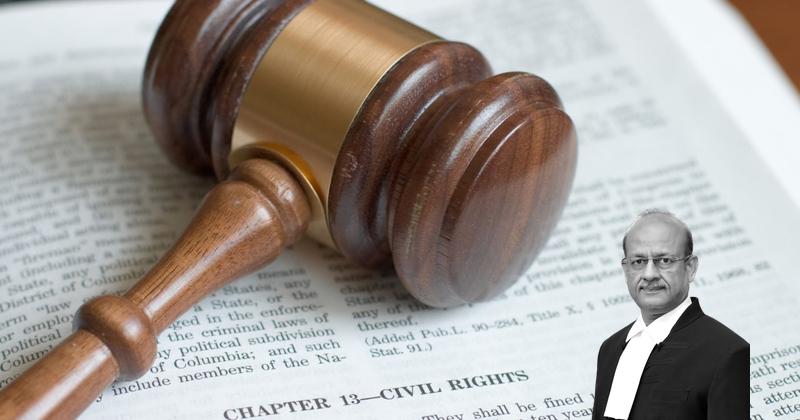The case involving the Garbage Processing Plant operations in Pune has reached a significant milestone with the Supreme Court of India delivering a crucial verdict on the environmental impact assessment. This judgment will have far-reaching implications for waste management policies in the region. Stay informed as we delve into the details of this important legal battle.
Facts
- The National Green Tribunal directed the Pune Municipal Corporation to close the Garbage Processing Plant operated by Noble Exchange Environment Solution Pune LLP at Baner, Pune.
- The closure of the Garbage Processing Plant was ordered to be done within 4 months from the date of the Tribunal’s order.
- The Tribunal granted the Maharashtra Pollution Control Board the liberty to recover environmental compensation from the Garbage Processing Plant based on the ‘polluter pays’ principle.
- The environmental compensation was to be recovered for the entire period during which the environmental norms were violated by the Garbage Processing Plant.
- The Municipal Corporation of Pune reserved land for a GPP in Baner Balewadi as per the Development Plan of 2002.
- A Concession Agreement was entered into between the Municipal Corporation and the Concessionaire on 30 March 2015 for setting up an Organic Waste Processing Plant.
- A Trust called Sus Road Baner Vikas Manch filed an OA in 2019 seeking to restrain the Concessionaire from operating the GPP due to procedural irregularities.
- The Concession Agreement was for a period of 30 years.
- The authorization granted by the MPCB for the GPP was renewed twice.
Also Read: High Court Misdirects in Proviso to Section 45 PMLA Case: Supreme Court Verdict
Arguments
- The Solid Waste Management Rules, 2016 allowed a two-year period for migration and upgrading of the existing Plant to the 2016 Rules, with waste disposal provisions coming into force in April 2018.
- The buffer zone requirements around waste processing and disposal facility came into force in 2017 and do not apply to a plant set up before that time.
- The GPP’s location complies with the 2016 Rules as only waste from surrounding areas is processed there.
- Efforts were made to find an alternative site but were unsuccessful due to various reasons.
- The GPP was found to cause pollution, but corrective measures were being taken, including installing compactors to manage reject waste and generating raw biogas from slurry at a different site.
- The MPCB’s circular dated September 6, 2021 clarifies certain positions regarding the operation and compliance of the GPP.
- The OA filed challenging the Environmental Clearance (EC) was submitted much later than the renewal period, and the GPP authorization has been renewed till September 2025.
- The GPP project aims to process food waste into biogas, which is used for clean public transportation in Pune City.
- The Waste Segregation Unit operations are within city limits while the Processing Plant is situated outside the city limits.
- Challenges to the GPP reservation in the Development Plan were not raised in the OA filed in March 2019.
- The GPP processes waste in a manner beneficial for the environment by converting organic waste into usable biogas and organic manure.
- MPCB followed the practice of only granting authorization before the circular dated 6 September 2021
- Consent was granted for GPP on 1 November 2022 and again on 16 March 2024
- Shri Laud proposed stringent directions to prevent pollution if GPP is allowed to continue operations
Also Read: Confirmation Dispute: Tripura University vs. Dr. Praveen Kumar Mishra
Analysis
- The GPP has been reserved since 2002, and the land use plans confirm this.
- The SEIAA granted Environment Clearance for the Organic Waste Management Plant after a public hearing in 2016.
- The GPP and the Organic Waste Management Plant are part of the same Concession Agreement signed in 2015.
- The Draft Development Plan reserved Plot No 48/2/1 for GPP, as per notifications.
- The GPP closure would have adverse effects and inconvenience to the public due to waste transportation.
- The 2016 Rules were notified in April 2016, and the GPP operations commenced before that.
- The MPCB started granting consent for Solid Waste Management Facilities post-September 2021.
- Various authorizations and clearances were obtained for GPP before the enforcement date of the 2016 Rules.
- The term “things done” as interpreted by the court includes not only the actions taken but also the legal consequences that follow from those actions.
- The term “anything duly done or suffered thereunder” in the law is aimed at ensuring that actions taken under a statute are not affected by its repeal.
- The purpose of a saving clause in a statute is to protect actions taken under the repealed law.
- The saving clause allows the pre-existing law to continue governing actions taken before the repeal comes into effect.
- The Petitioner’s suggestion that the lives of slum rehab building residents can be endangered by the same staircase while prioritizing their members’ interest is not acceptable.
- The High Court’s observations regarding the safety of the residents are agreed upon.
- The impugned judgment and order of the Tribunal in OA No 210 of 2020 and Review Application No 49 of 2020 are quashed and set aside.
- The appeals are allowed, and the OA of the Petitioner is to be dismissed.
Also Read: Supreme Court Judgement on SEBI’s Consent Order in Writ Petition
Decision
- Plantation with thick density should be carried out around the GPP to create a green cover.
- Consider growing Miyawaki forests in the Bio-diversity Park for green lungs.
- NEERI to conduct environmental audits every six months for GPP, with strict compliance to suggestions.
- Construct a shed to cover the reject area by December 31, 2024.
- Take necessary steps to avoid foul odors affecting nearby residents.
- Recommendations from NEERI include proper covering of slurry making area, installation of odor control systems, and slurry sampling and analysis for methane production.
- Install portable compactors with hook mechanisms to prevent reject waste from touching the ground by December 31, 2024.
- Construct bitumen road to Waste Segregation Plant and concrete the reject area for clean waste transfer and water accumulation prevention.
Case Title: PUNE MUNICIPAL CORPORATION Vs. SUS ROAD BANER VIKAS MANCH (2024 INSC 682)
Case Number: C.A. No.-000258-000259 – 2021



